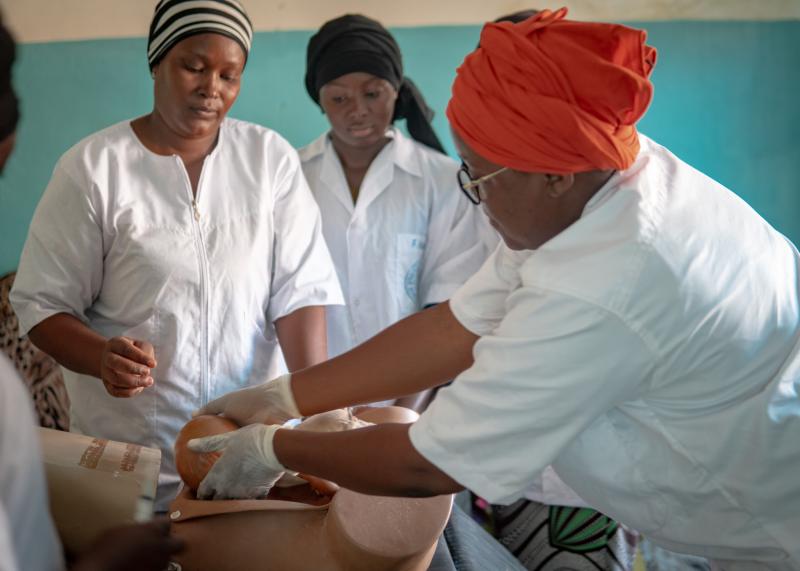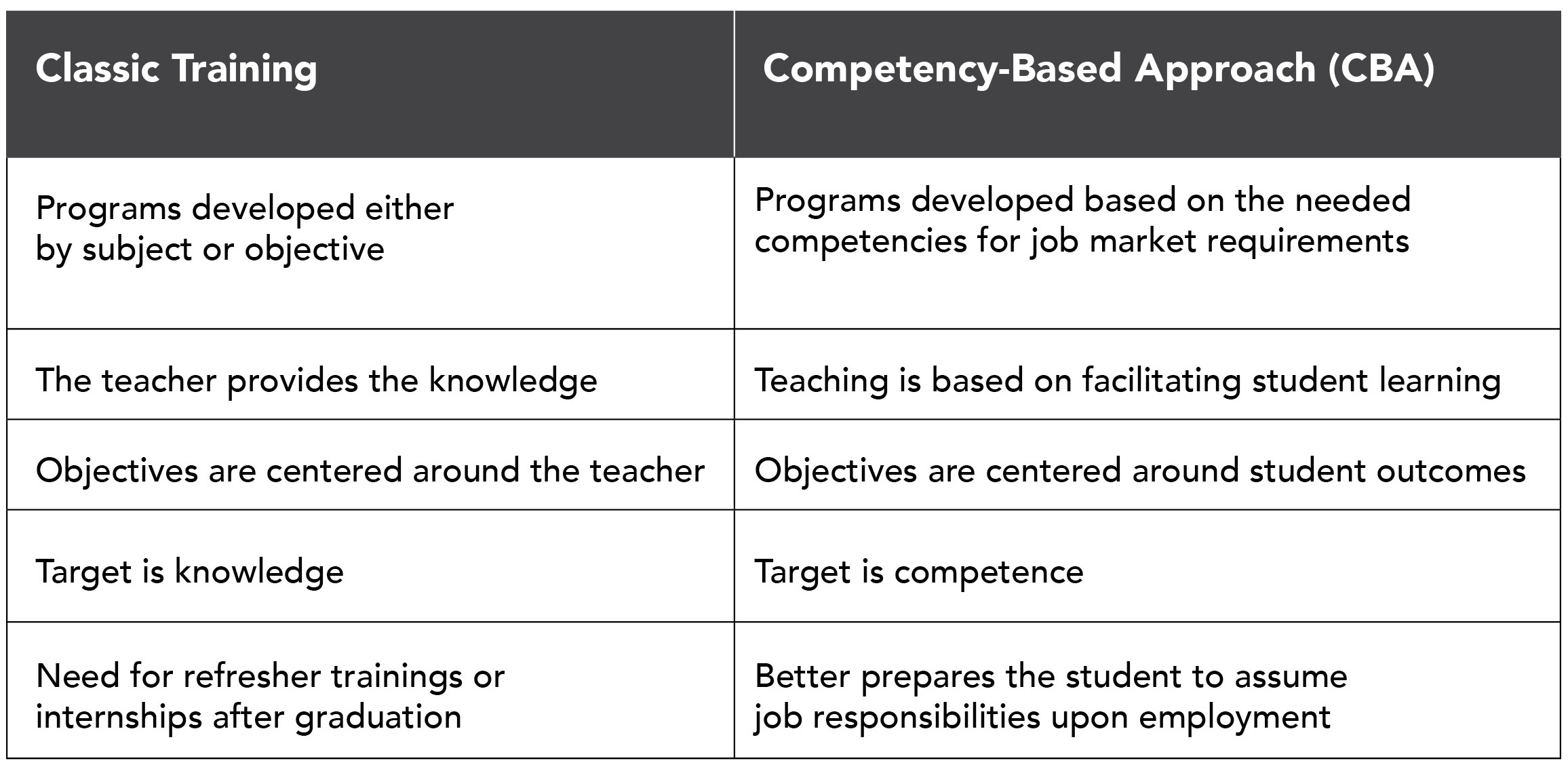Where We Work
See our interactive map


Photo by Amadou Iam Diallo for IntraHealth International
Through the Classroom to Care (C2C) project, funded by Takeda's Global Corporate Social Responsibility (CSR) Program, IntraHealth International is improving access to high-quality maternal and child health care in Mali, Niger, and Senegal by strengthening the preservice training of nurses and midwives in 12 private health schools. Now at the end of the second year of the project, more than 3,000 nursing and midwifery students—75% of whom are women—are benefiting from updated curricula adapted to local clinical practice.
The project is responding to several pressing issues. There is a critical shortage of health workers (nurses, midwives, and doctors) available in the three countries, with only 6.1 health workers in Mali, 3.9 health workers in Niger, and 4.3 health workers in Senegal for every 10,000 people. The shortage is even more acute in rural areas. Currently, traditional preservice education curricula have not prepared health workers for real-life work conditions, and many health training institutions are inadequately equipped and unaccredited. Furthermore, women are disproportionally disadvantaged when it comes to enrollment and graduation due to a variety of factors, such as family responsibilities. Discrimination against women and gender inequalities directly impede development of the health workforce to provide equitable and accessible health services.
Meanwhile the maternal mortality rate remains very high in the three countries, with 315 deaths per 100,000 live births in Senegal, and more than 500 deaths per 100,000 live births in Mali and Niger. And in Mali and Niger, approximately 10% of children die before their fifth birthday.
Competency-focused preservice education is critical for the provision of high-quality maternal and child health services that meet local needs. Since 2006, the West African Health Organization (WAHO) has pushed to harmonize training curricula for nurses and midwives in the Economic Community of West African States (ECOWAS) region that addresses current disease patterns as well as intra-regional migration. The curricula use a competency-based approach (CBA) that considers population and student needs to replace classic training. Many health schools in the region, however, have still not started the process of implementing the WAHO standardized curricula or been able to train a critical mass of teachers on CBA.

From 2017-2020, the USAID/Mali Human Resources for Health Strengthening Activity, led by IntraHealth, supported the use of competency-based curricula in 10 schools and strengthened policies and practices related to recruitment and retention of students, leading to improved performance of health workers.
The five-year C2C project builds on this work and supports four private schools in each country to strengthen preservice education of nurses and midwives through enhanced competency-based curricula; train teachers and others in the CBA, achieve the appropriate accreditations; and promote diversity, equity, and inclusion (DEI) to increase the number of nursing and midwifery graduates, particularly women from marginalized communities and vulnerable groups.
C2C partners with a diverse set of stakeholders, including WAHO, government bodies including the ministries of health and education in each country, government units such as the Human Resources Division and the Division for Mother and Child Health, private school associations, health professional associations, and Empower School of Health.
C2C conducted an in-depth needs assessment to identify the baseline for each school, then developed capacity-building plans for all 12 schools to address gaps in national accreditation standards, purchased essential teaching equipment for competency labs, and digitized eLearning modules harmonized with the WAHO curricula.
At the end of Year 2, the project has:
C2C is currently conducting DEI situational analyses in all three countries, and in the next year will use them to develop school-specific DEI plans that apply DEI best practices, such as providing nurseries and lactation rooms, to make partner schools more inclusive for women students and boost well-being and academic performance.
C2C will launch the eLearning platform and over the next three years will expand the platform to also include management and leadership courses and solidify it as the standard in health care education across West Africa. C2C will ensure each partner school receives the necessary equipment and technical support to set up competency and computer laboratories. C2C will deepen engagement with stakeholders, from government bodies to local communities, ensuring that the project's impact is sustainable and far-reaching.
The project will also continue its Private Sector Community of Practice, strengthen public-private partnerships through the technical working groups, and oversee implementation of action plans in each school.
By the end of the project, C2C aims to have 580 teachers trained on the CBA, 9,720 students benefiting from quality training, and all 12 private health schools accredited.
Learn more about the Classroom to Care project in three short videos produced by IntraHealth’s Mali team for a virtual visit this month with Takeda.



